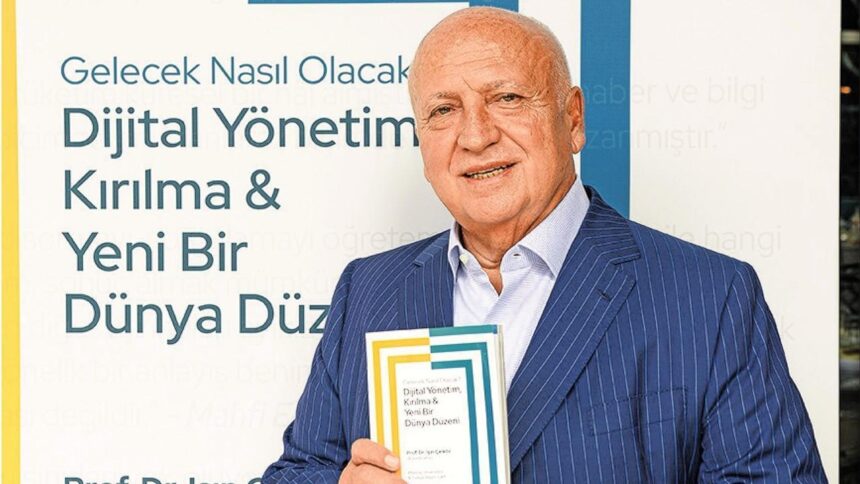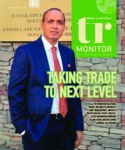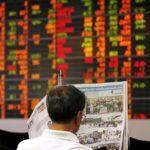BY HAKAN GULDAG, VAHAP MUNYAR, SEREF OGUZ
“Stability is intertwined with the quality of a democracy and the degree to which human rights are respected. The most important issue in Turkey is to provide stability and trust.”
Q: HOW DO STEPS TAKEN BY TURKEY IN FOREIGN POLICY AND THE MANAGEMENT OF GEOPOLITI˹ CAL RISKS AFFECT THE ECONOMY?
A: The Regional Comprehensive Economic Partnership (RCEP), founded under the leadership of China between 10 Asian countries in the Asia-Pacific, and five other countries, including Australia, Japan, New Zealand and South Korea, in response to the U.S.-European Union (EU) Trans-Atlantic Agreement, account for nearly 30% of global Gross Domestic Product. So, the new competition between the U.S.-EU and Asia-Pacific (RCEP) will determine the world’s future.
The growing U.S.-EU partnership will create an important alliance. However, Turkey’s firm position regarding the S-400s undermines relations with the U.S. Considering Turkey’s objectives for 2021 and the future, these issues should be approached with flexibility. Problems should be negotiated openly. The U.S. and Turkey should form a basis of discussion for these issues. All of them should be discussed in this environment; relations should be reconsidered and renewed. The S-400 issue can also be solved under the supervision NATO. But sanctions passed by the U.S Congress in response to the S-400 should be considered. Development of economic relations necessitates working in accordance with the U.S.-EU block and the Asia-Pacific cooperation. Turkey should increase technology production and usage and should develop relations. Continuing our work with Russia is also important.
Q: HOW DO YOU READ TURKEY’S 1.8% GROWTH IN 2020?
A: The Turkish economy grew while the global economy shrank, which is important. However, Turkey’s population growth is around 2%. The 1.8% growth stemmed from the growth in the construction sector as a result of public banks’ credit expansion. The majority of the houses that were built are not occupied. Increases in commodity and transportation costs as a result of the fluctuation in foreign exchange (FX) rates adversely affect growth.
Q: WHAT IS THE IMPACT OF THE FREQUENT CHANGE OF THE CBRT GOVERNOR?
A: The Central Bank (CBRT) is one of the most important institutions in Turkey. The CBRT is the final borrower. The CBRT governorship represents stability and confidence. However, the absence of principles has eroded the environment of trust. Today, a time is needed to rebuild stability and confidence. The EUR appreciated by more than 40% while the USD appreciated by over 30%. Raw material prices and transportation costs increased. That’s why we need to act in a restrained and careful manner.
Q: WHAT KIND OF ROADMAP SHOULD TURKEY PREPARE TO PROVIDE STEADY GROWTH AND INCREASE WELFARE IN THE NEW PERIOD?
A: We need to increase production and technology. Turkey should increase its competitive power and productivity in every field. To do so, foreign investments should be prioritized in a manner that will permanently increase foreign direct investment flows. Technological developments should sustainable, and to achieve this we should cooperate with countries and institutions, such as the U.S., China and the EU. The 17-item Sustainable Development Goals should be implemented. Issues such as hunger, poverty, education, health, gender inequality and climate change should be tackled seriously.
The business world and universities should make ‘thinking and questioning’ a part of their lives and should attach importance to asking questions. Stability is intertwined with the quality of a democracy and the degree to which human rights are respected. The most important issue in Turkey is to provide stability and trust.
Q: HOW DOES EU ACCESSION STAND?
A: Our problems with EU are increasing, in large part because of the backstage machinations of Greece and Cyprus. The EU doesn’t mention Turkey’s full membership or candidate status anymore, which means our status in the EU is deteriorating. We began the process of full membership in the EU in 2005. Today, we’ve become a country that finds solutions to the refugee problem. For example, many sections on modernization of the Customs Union (CU) with EU include regulations in favor of the EU. However, the EU continues to procrastinate. Modernization of the CU agreement includes the ‘improvement of dispute mechanisms’ in agriculture and services.The EU full membership process is a ‘process of democracy and human rights’. In response to China’s new blocking within the scope of Asia-Pacific, and the U.S.-EU Transatlantic union, we should proceed on the EU full membership process.
Q: THE ‘GREEN DEAL’ AND ‘INDUSTRY 5.0’ HAVE COME TO THE FORE IN THE DEVELOPED COUN˹ TRIES. HOW WILL THEY AFFECT TURKEY?
A: We should support Turkey’s initiative power in research, development and innovation. Education system should be renewed. We need individuals that ask, examine and question. This process also necessitates balances between sustainable development, human and nature. The concept of ‘eco-development’ should be ensured by providing conscious usage of natural resources.
Q: HOW DO YOU READ THE ‘ECONOMIC REFORM PACKAGE’ ANNOUNCED BY PRESIDENT ERDOGAN?
A: It isn’t a reform package. It includes normal daily decisions necessary to be taken. Reforms are a new strategy understanding having the characteristics of revolution, represented within an integrity, which necessitates continuity and will pave the way for big changes. For example, the ‘Alphabet Reform’ implemented during Ataturk’s term was a revolution. It was a culture revolution that changed the entire education system. Other developments in education life which followed this had the characteristics of reform. Turkey’s foreign expansion, the shift to an open economy and open society and exports becoming a part of our lives were revolutions. Change in FX regime and liberalization were reforms. Changes comprised by these reforms have been implemented over a period.










